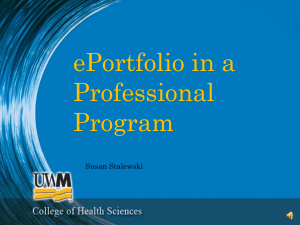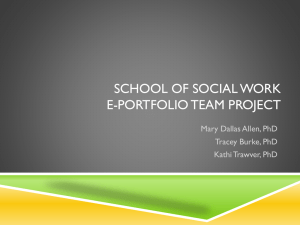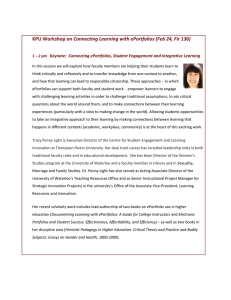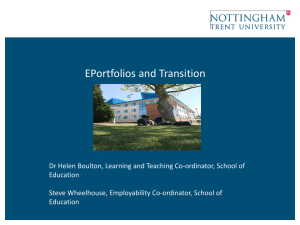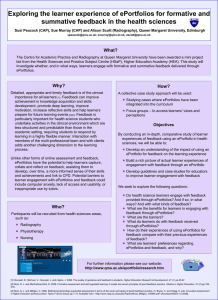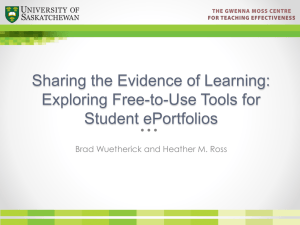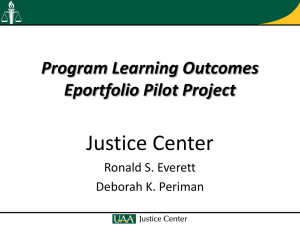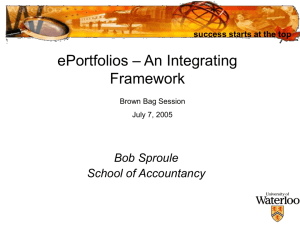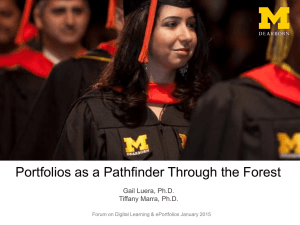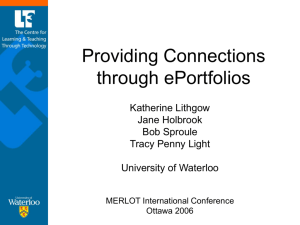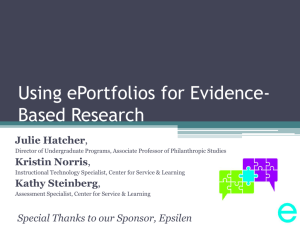eportfolios: Graduate Qualities, Standards & ICT
advertisement
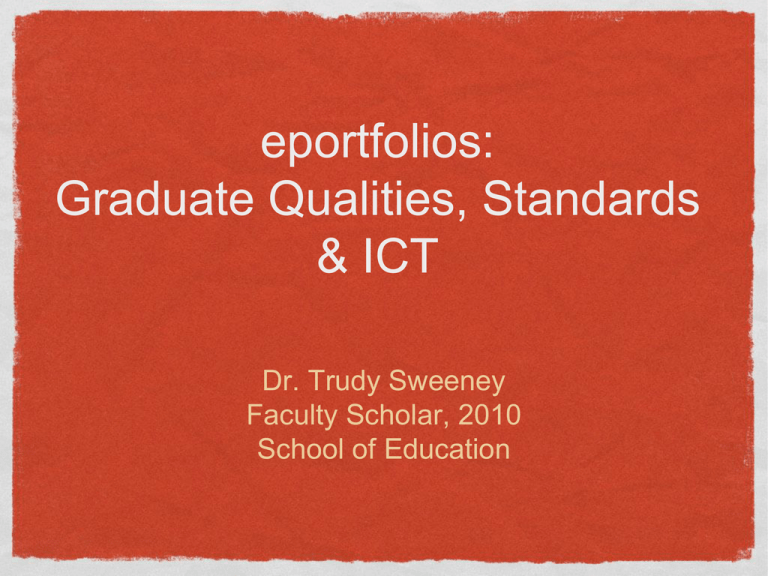
eportfolios: Graduate Qualities, Standards & ICT Dr. Trudy Sweeney Faculty Scholar, 2010 School of Education Background There is a limit to what can be included in the formal curriculum to assist students to achieve the most appropriate graduate capabilities. We can also encourage, or require, students to self-assess their achievement of such capabilities and their attainment of relevant professional standards. An ePortfolio system is one way this can be done in an independently managed online space. ePortfolios are not a new concept but the digital environment can promote more profound forms of learning. Focus of inquiry What is the potential of ePortfolios to enhance teaching and learning in the School of Education at Flinders University? What are the models of success, the challenges and implications? How might ePortfolios be of value to other schools in the faculty? ePortfolios are one component of developing graduate capability Source: Prof. Beverley Oliver, ALTC Research Fellow, 2010, Curtin University http://web.me.com/beverleyoliver1/benchmarking/About.html “... there is a high level of interest in the use of ePortfolios to help students become reflective learners who are conscious of their personal and professional strengths and weaknesses, as well as to make their existing and developing skills more explicit” (p. iii). http://www.eportfoliopractice.qut.edu.au /information/report/ Project Outcomes Data will be available on how and where in the new Education courses the graduate qualities will be contextualised, embedded and assessed. Opportunities to evaluate, extend and enhance student learning using ICT tools are identified in topics and courses. Interested staff will form an eportfolios workgroup to develop and share knowledge, skills and confidence to use PebblePad as an eportfolio tool. Models and principles of best practice using PebblePad will be investigated and shared with interested Faculty staff. Pebble Pad Pebble Pad is not just an eportfolio. It’s an environment to construct portfolios and support personalised and reflective learning. “Hello World! This is me” Pebble Bash 2010 Baume (2003) conceptualised the developmental portfolio as, “a compost heap ... something refined over time, enriched by addition, reduction and turning over” (p.4). “Small cycles of innovation” (Masters, 2010) and an organic process. Support frequent use throughout a course to ‘fade’ the software Hughes, 2010 School of Education We have some excellent reflective practices happening in topics. There is an opportunity to make explicit connections between the topics throughout the new courses using graduate capabilities and/or professional standards. At La Trobe University, School of Education students use the wizards in PebblePad to reflect on aspects of their professional experience. In the final year, students create a webfolio that relates aspects of their personal and professional life to the Victorian Institute of Teaching Standards for Graduate Teachers. eportfolios for staff Successful implementation occurs when staff use Pebble Pad to support their professional development Challenges Securing funding beyond 2011 ($20,000 for 1000 licenses!!) Ensuring technical support for students Identifying learning design support for staff Starting small in 2011 with first year students and identifying a developmental pathway throughout courses Working with the graduate qualities and professional standards Conclusion “e-portfolios radically alter how students learn, how faculty teach, and how institutions assess the value of their education... e-portfolios are literally remaking the landscape of higher education” (Yancey, 2009). Pebble Pad is an excellent tool to support student learning There are many research opportunities related to the use of ePortfolios to improve practice How can we convince University leaders to provide funding?
